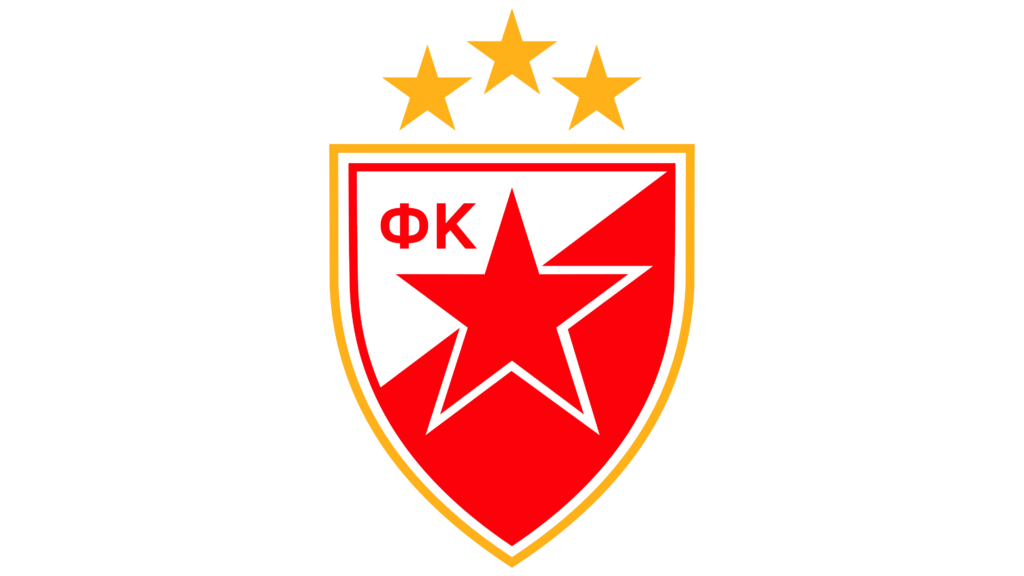Crvena Zvezda Football Club, also known as Red Star Belgrade, is one of the most iconic football clubs in history. Founded in 1945, this Serbian powerhouse has a rich legacy and is celebrated not only for its sports achievements but also for its cultural significance in the region. The club has established itself as a pivotal player in both domestic and international football, earning numerous accolades and loyal fans worldwide. This blog post will explore the remarkable rise of Crvena Zvezda Football Club, tracing its journey through various eras, significant milestones, and the factors that have contributed to its success qq88.
Historical Background of Crvena Zvezda
In understanding the rise of Crvena Zvezda Football Club, it is essential to delve into its historical context. Established immediately after World War II, the club was part of a broader effort to promote physical culture in the newly formed Socialist Federal Republic of Yugoslavia.
The early years were marked by an ambitious agenda to unify a diverse nation through sports, and Crvena Zvezda quickly emerged as a symbol of national pride. The club’s name, which translates to “Red Star,” indicates its socialist roots, while its colors symbolize the revolutionary spirit of the time.
Foundation and Early Years
Crvena Zvezda was founded on March 4, 1945, by a group of young athletes aiming to create a club that would unite people from different backgrounds. In its initial years, the club faced the challenges of building a competitive team amidst the social and political upheaval of post-war Yugoslavia.
The club began to establish itself within the local leagues, quickly rising through the ranks. The first significant achievement came in 1951 when Crvena Zvezda won its first league title. This victory marked the beginning of a new era, establishing the club as a formidable force in Yugoslavian football.
Growth in Popularity
As Crvena Zvezda continued to achieve success on the pitch, its popularity soared among fans. The club’s emphasis on youth development and talent scouting became a hallmark of its philosophy. This focus on nurturing young players created a sustainable model for success, as many homegrown talents found their way into the first team.
The club’s stadium, Marakana, named after the famous Brazilian venue, became a fortress for Crvena Zvezda. Fans flocked to the stadium, transforming matchdays into vibrant celebrations of football, community, and passion. With each passing season, the bond between the club and its supporters deepened, creating an atmosphere unmatched in European football.
International Recognition
The turning point for Crvena Zvezda came in the late 1980s, with the club achieving international recognition. The 1990-91 season was particularly remarkable, culminating in victory in the prestigious European Cup. In the final, held in Bari, Italy, Crvena Zvezda faced Olympique de Marseille. The match ended goalless after extra time, leading to a penalty shootout that saw Crvena Zvezda emerge victorious.
This monumental win not only solidified the club’s status in European football but also inspired a generation of players and fans. It showcased the potential of Yugoslavian football on the world stage and highlighted the significance of Crvena Zvezda as a sporting institution.
The Legacy of Crvena Zvezda Players
Crvena Zvezda Football Club has been home to numerous legendary players who have made indelible marks on the game. Their contributions have shaped the club’s identity and have had lasting impacts on football both locally and internationally.
Icons of the Game
The club has produced an array of footballing icons. From the likes of Dragan Džajić, who is often regarded as one of the best Yugoslavian players ever, to more contemporary stars such as Dejan Stanković and Nemanja Vidić, the list of greats associated with Crvena Zvezda is extensive. Each player brought unique attributes that contributed to the club’s successes over the decades.
Dragan Džajić, known for his brilliant dribbling skills and exceptional vision, is synonymous with Crvena Zvezda’s history. His performances during the 1960s and 1970s set a standard for future generations. Fans still recall his mesmerizing runs and ability to change the course of a game single-handedly.
The Youth Academy
One of the defining features of Crvena Zvezda Football Club is its commitment to youth development. The club’s academy has been instrumental in producing talented players who have gone on to succeed at both the national and international levels.
The youth academy emphasizes technical skills, tactical awareness, and a strong work ethic. Coaches instill a sense of discipline and dedication, preparing young athletes for the rigors of professional football. The success of the academy is evident in the number of players who have graduated and subsequently starred for the first team or moved on to play in top leagues across Europe.
Impact on National Team
The contributions of players from Crvena Zvezda extend beyond club football; they have also played crucial roles in the national team. Throughout the years, many former Red Star players have donned the national jersey, representing Serbia on the grand stage.
Notable players like Stanković have been pivotal in national tournaments, helping to elevate Serbia’s footballing reputation globally. The synergy between Crvena Zvezda and the national team has fostered a culture of excellence, enhancing the overall quality of Serbian football.
Crvena Zvezda in Modern Football
The landscape of modern football poses challenges and opportunities for traditional clubs like Crvena Zvezda Football Club. Amidst rapidly changing dynamics, the club has shown resilience and adaptability, remaining steadfast in its pursuit of success.
Financial Challenges and Strategies
In recent years, football has become increasingly commercialized, with clubs facing intense competition for financial resources. Crvena Zvezda has navigated these challenges by implementing strategic initiatives designed to maximize revenue streams.
One approach has been to capitalize on player transfers. By scouting and developing young talent, the club can generate income through sales to larger European teams. Such strategies have allowed Crvena Zvezda to reinvest in both the squad and infrastructure, ensuring sustained competitiveness.
Globalization of Football
The globalization of football presents both challenges and opportunities for Crvena Zvezda. As clubs from wealthier leagues attract top talent from around the world, maintaining a competitive edge becomes imperative.
Crvena Zvezda has leveraged its passionate fan base and rich heritage to bolster its global brand. Engaging with international audiences through social media, friendly matches abroad, and partnerships with foreign clubs has expanded its reach beyond Serbia. This global engagement helps sustain interest in the club and fosters a sense of belonging among supporters worldwide.
Recent Successes
In recent times, Crvena Zvezda has enjoyed notable successes, including domestic league titles and appearances in European competitions. The club’s performances in the UEFA Champions League have captured attention and rekindled the belief that it can compete on the highest stage.
These accomplishments are a testament to the club’s enduring legacy and ambition. They showcase not only the talent within the squad but also the effective management and vision driving the organization forward. The club remains a beacon of hope for fans and aspiring players alike, continuing to inspire future generations.
The Culture Surrounding Crvena Zvezda
Beyond football, Crvena Zvezda Football Club embodies a culture deeply rooted in its community. The club’s influence extends into music, art, and social initiatives, fostering a sense of unity and pride among supporters.
Fan Culture
The passionate fan base of Crvena Zvezda, known as Delije, is renowned for its unwavering loyalty and vibrant displays of support. Matchdays at Marakana transform into electrifying experiences, where fans come together to celebrate their love for the club. The vivid choreography, chants, and banners demonstrate the deep emotional connection fans share with Crvena Zvezda.
This fan culture transcends mere entertainment; it serves as a source of identity for many. Crvena Zvezda represents not just a football team but a community that embodies shared values, aspirations, and collective pride. The relationship between the club and its supporters is a cornerstone of its success and a testament to the power of sport in uniting people.
Community Initiatives
Crvena Zvezda engages actively in community initiatives, promoting social responsibility and positive impact. The club organizes outreach programs aimed at supporting underprivileged youth, encouraging healthy lifestyles, and fostering inclusivity.
Such initiatives help strengthen the bond between the club and the community, reinforcing the idea that Crvena Zvezda is not just a football entity but a responsible corporate citizen. By investing in the future of young individuals, the club plays a role in shaping the next generation of leaders and athletes, leaving a lasting legacy beyond football.
Cultural Events
The cultural significance of Crvena Zvezda is evident in the various events organized throughout the year. From commemorating historic victories to celebrating key moments in the club’s timeline, these events gather fans and alumni to reflect on their shared history.
Moreover, collaborations with artists, musicians, and other cultural figures highlight the intertwining of sport and culture. These events serve to nurture creativity and foster connections within the community, further solidifying Crvena Zvezda’s place in the fabric of Serbian society.
Conclusion
The rise of Crvena Zvezda Football Club is a story of triumph, resilience, and community spirit. The club has evolved over the decades, navigating challenges while embracing opportunities that have led to its current stature as a revered institution in football. From its humble beginnings to becoming a continental champion, Crvena Zvezda stands as a testament to the enduring power of football to inspire, unite, and uplift.
As we look to the future, the club’s commitment to youth development, community engagement, and strategic growth will be pivotal in ensuring its continued success. For generations to come, Crvena Zvezda will remain a symbol of hope and pride, captivating the hearts of fans and inspiring young athletes to chase their dreams on and off the pitch.

